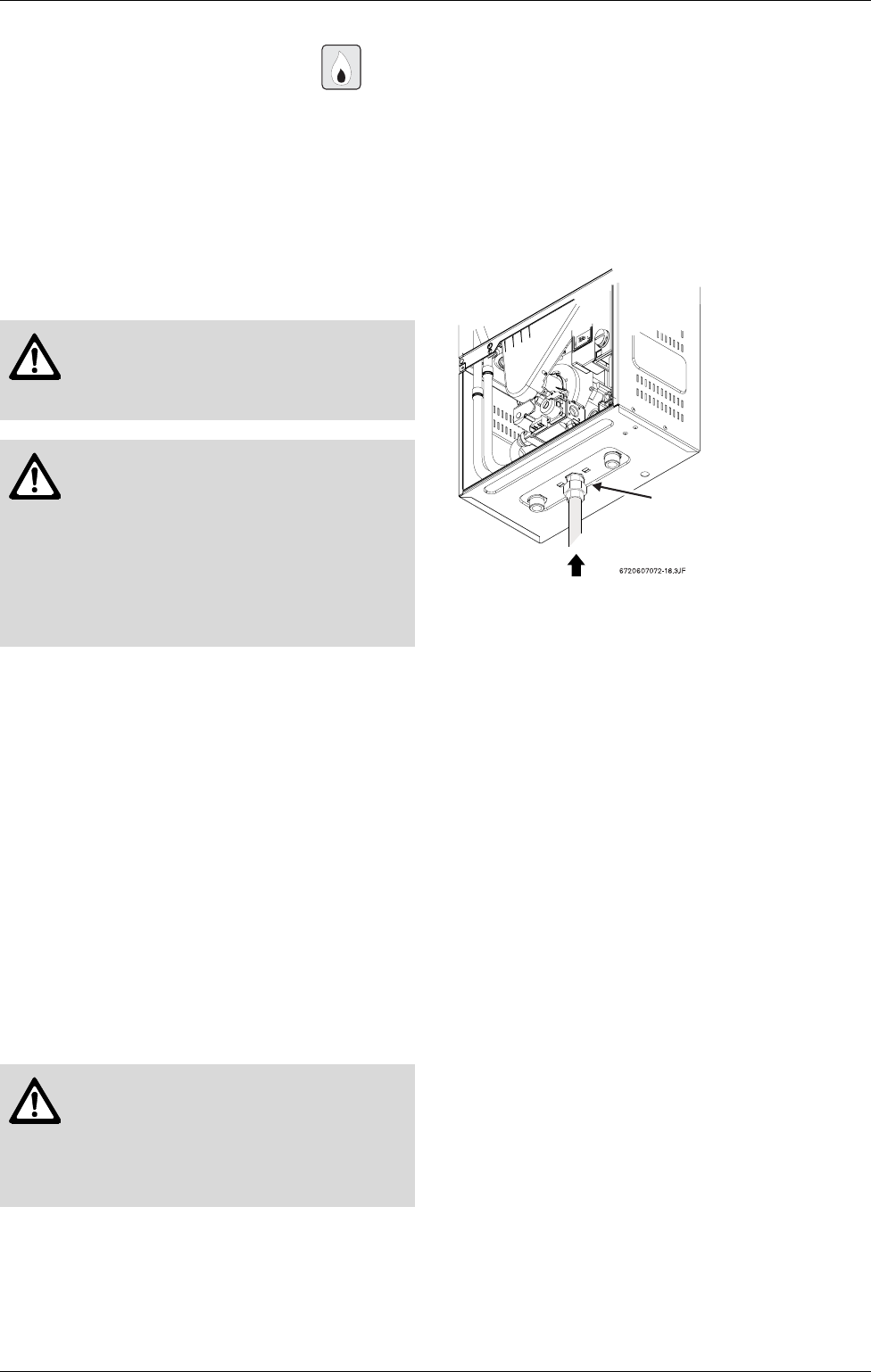
6 720 608 263
Installation instructions
19
3.7 Gas piping & connections
Before connecting the gas supply, check the rating
plate on the right side of the heater to be sure that the
heater is rated for the same gas to which it will be
connected.
In the United States: The installation must conform with
local codes or, in the absence of local codes, the
National Fuel Gas Code ANSI Z223.1/NFPA 54.
In Canada: The Installation must conform to CGA B149
INSTALLATION CODES and/or local installation
codes.
GAS CONNECTIONS
B Install a manual gas shut off valve on the gas supply
line.
B Install a union when connecting gas supply.
B The minimum diameter required for any appliance
connector used is ¾” ID.
B National Fuel Gas Code requires that a sediment
trap (drip leg) be installed on gas appliances not so
equipped. The drip leg must be accessible and not
subject to freezing conditions. Install in accordance
with the recommendations of the serving gas
supplier.
Once connections are made, check for gas leaks at all
joints. Apply some gas leak detection solution to all gas
fittings. Bubbles are a sign of a leak. A combustible gas
detector may also be used to detect for leaks.
GAS LINE SIZING
The gas supply piping should be sized for a maximum
draw of 175,000 BTUH. Measure the length of gas
supply line and use the tables in Fig. 22 or the gas line
manufacturer’s sizing tables to determine the pipe
diameter necessary to accommodate the 175,000 BTU
demand of the heater. If there are more gas drawing
appliances on the line, size the gas line according to the
total maximum amount of BTU draw for all appliances.
Note: Under sizing the gas line may result in diminished
output and improper operation. See chapter 3.8 for the
procedure to confirm gas pressure. Proper gas
pressure must be confirmed at time of installation.
Fig. 21
Warning: DO NOT connect to an
unregulated or high pressure propane
line or to a high pressure commercial
natural gas line.
Warning: The heater must be isolated
from the gas supply piping system
during any pressure testing of that
system at test pressures equal to or
more than 0.5 psig. If overpressure has
occurred, such as through improper
testing of the gas lines or malfunction of
the supply system, the gas valve must
be checked for safe operation.
Danger: If you have a leak, shut off the
gas. Tighten appropriate fittings to stop
leak. Turn the gas on and check again
with a gas leak detection solution.
Never test for gas leaks using a match
or flame.
Gas piping
Inlet gas particle screen


















